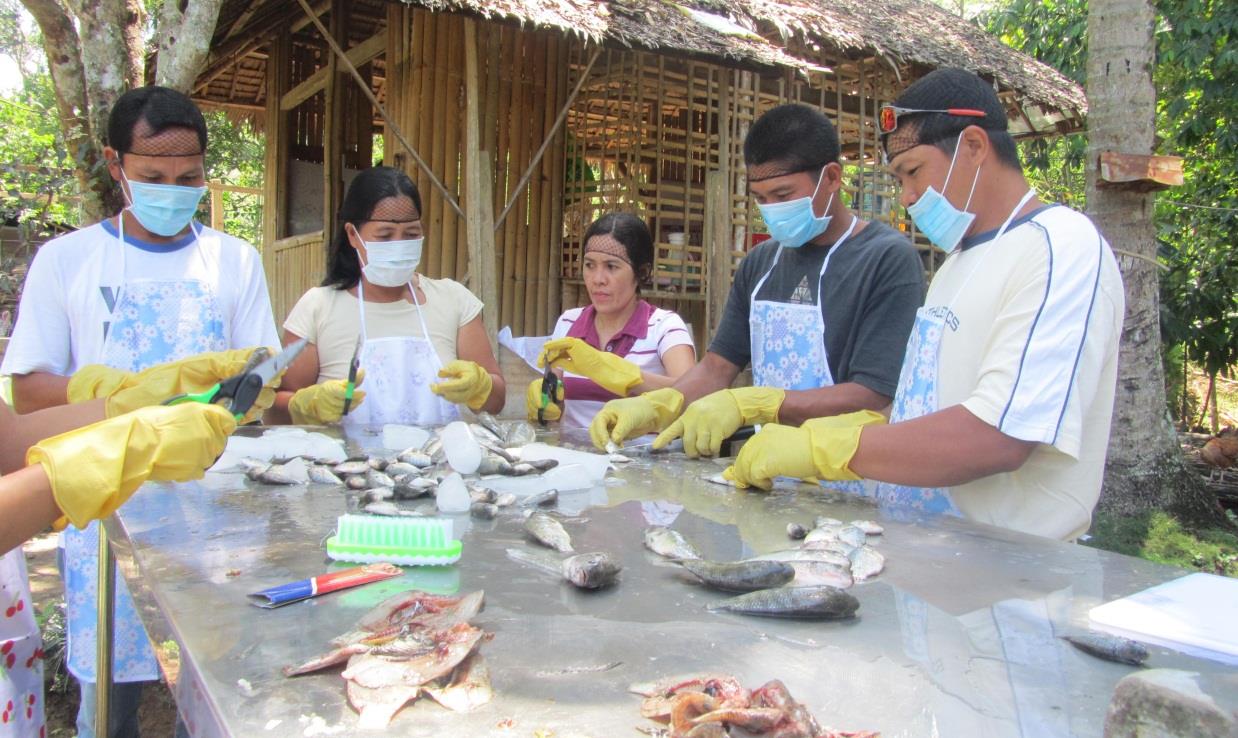Rural life can sometimes be droning especially to farmers who have been engaged in the same farming practices over the years. Innovation might have been introduced but close to nothing has succeeded because of backwardness, disinterest, capital and poor access to development programs.
Despite treacherous tests, Linabo Agrarian Reform Cooperative (LARC) defies reasons for downfall. Located at Sitio Linabo, Lalawan, Malaybalay City, the cooperative cried out loud summoning the concerted efforts of different organizations to bring success to their perceived endeavours – including that of DTI.
With the aim of rising from the traditional farming method, LARC members organized themselves to grow, not just a step higher but a milestone greater, from individual pond owners to a strengthened group of tilapia processors.

Seizing the Opportunities
Year 2012 when the Department of Agrarian Reform – Catholic Relief Services (DAR-CRS) introduced dried tilapia to LARC fish pond owners. “Tilapia Crunch” – patterned after the famous Danggit of Cebu, captured the taste of the locals.
Being a known Filipino dish tied with affordable price, LARC targeted low income earners in the community as primary market. To their surprise, the product also captured the taste of affluent households in the vicinity making their product easily marketable.
Overcoming Challenges
After their product was made known to the market, influx of orders came-in; then they realized the challenges that slowed them down. Challenges found behind their processing practices which are non-compliant with the Good Manufacturing Practices (GMP).
The absence of centralized processing area, working table and proper equipment drove their member-producers to process their farm-produced tilapia wherever tap water is available – neglecting possible contamination.
Despite scarcity of resources, LARC Processing In-charge Flor Cordero encouraged members to continue. “The activity increased members’ income, thus winding-down is unreasonable,” remarked Flor.
By then, they consulted various agencies, DTI was one. In 2013, they started receiving regular business advisory from DTI-Bukidnon.
Concerted Efforts of Enabling Agencies
Seeing the relentless effort of the group, DTI-Bukidnon addressed their struggle for productivity, and processing safety and standards.
Through the Shared Service Facility (SSF) Project, Tilapia Crunch Processing Facility worth 81,000 was established on April 2014. This filled the group’s needs for equipment like freezer, impulse sealer, and stainless steel working table.
Skills Training on Tilapia Crunch Processing was also conducted to improve processing practices.
The farmers deeply recognized the sincere commitment of DTI to help them grow, teary-eyed Flor relayed.
Hearing the group’s battle cry, DAR also built a building for them worth 250,000 in 2014 where “Tilapia Crunch” is now being processed.
Advancing the group further, DTI recently conducted an appreciation seminar on Good Manufacturing Practices (GMP) in collaboration with the Department of Science and Technology (DOST). The seminar endowed valuable insights to 12 member-processors adhering to produce safe, quality products.
Along with other support agencies, DTI continuously provide technical and business advisory services to the growing group of 97 farmers, as they sustainably uphold growth and development in their organization.


